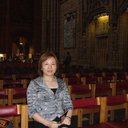Identification and quantification of 1,3-dimethylbutylamine (DMBA) from Camellia sinensis tea leaves and dietary supplements.
Keywords
Abstract
1,3-dimethylbutylamine (DMBA), is a CNS stimulant, which has recently been identified in multiple dietary supplements and sometimes labeled as a natural constituent of Pouchung tea. DMBA is an homologue of 1,3-dimethylamylamine (DMAA) which the US Food and Drug Administration has attempted to remove from all dietary supplements after DMAA consumption was linked to strokes, heart disease, and sudden death. To address questions concerning the natural origin of DMBA, three independent analytical methods were developed for analyzing authentic tea samples and dietary supplements. A high performance thin layer chromatography (HPTLC) method was developed for the fast screening and chemical fingerprint analysis. Chiral Gas Chromatography-Mass Spectrometry (GC-MS) was used to determine the enantiopurity and a validated Ultra-High Performance Liquid Chromatography-Quadrupole Time of Flight Mass Spectrometry (UHPLC-QToF-MS) method was developed for the quantification of DMBA. Using these techniques the presence of DMBA was confirmed using a reference standard and was not detected in any of 25 authentic or commercial samples of Camellia sinensis tea leaves (green tea, black tea, Oolong tea, and Pouchung tea). Of 13 dietary supplements tested, 11 contained DMBA in racemic form and ranged from 0.1 to 214mg per daily dose.



